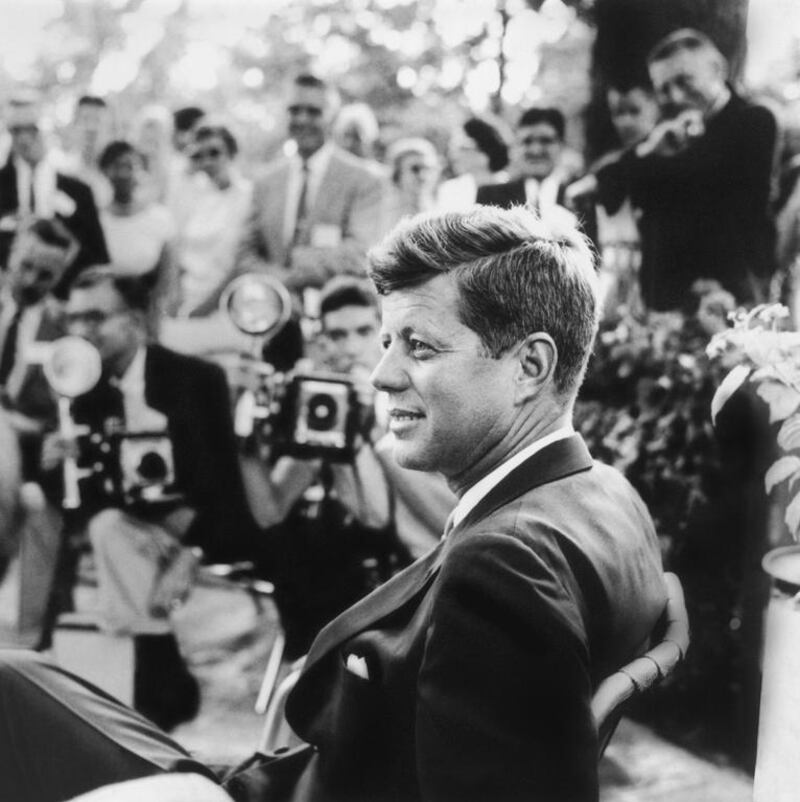US President Donald Trump does not plan to block the opening of long-secret files on the November 1963 assassination of President John F. Kennedy next week.
Politico magazine earlier quoted Trump administration and other U.S. government officials as saying the president would almost certainly block the release of information from some of the thousands of classified files, which the U.S. National Archives is scheduled to make public by an Oct. 26 deadline. "Subject to the receipt of further information, I will be allowing, as President, the long blocked and classified JFK FILES to be opened," Trump said in a tweet.
"The president believes that these documents should be made available in the interests of full transparency unless agencies provide a compelling and clear national security or law enforcement justification otherwise," a White House official said.
The Nov. 22 1963 assassination cut short "Camelot," as the 1,000 days of the Kennedy presidency became known. Kennedy was 46 and remains one of the most admired U.S. presidents.
Thousands of books, articles, TV shows, movies and documentaries have been produced about the assassination and surveys have shown a majority of Americans still distrust official evidence pointing to Lee Harvey Oswald as the sole killer.
Despite serious questions about the official inquest, and theories purporting that organized crime, Cuba or a cabal of U.S. security agents was involved, conspiracy theorists have yet to produce conclusive proof Oswald acted with anyone.
Over the years, the National Archives has released most documents related to the case, but a final batch, amounting to tens of thousands of pages, remains and only Trump has the authority to decide whether some should continue to be withheld or released in redacted form.
The Washington Post and other media have quoted officials as saying that government agencies have lobbied Trump to withhold some of the documents, arguing that they could expose relatively recent intelligence and law enforcement operations.
Philip Shenon, the author of the Politico article and of a book on the assassination, said he did not think the last batch of papers contained any major bombshells, but may shed light on the activities of Oswald while he was traveling in Mexico City in late September 1963, and courting Cuban and Soviet spies.
"From the record we already have, we know he met there with Soviet spies and Cuban spies and other people who might have wanted to see Kennedy dead," Mr Shenon said.
"It’s going to be very interesting to see what else the government knew about the threat Oswald might pose and how much more they learned about his trip in Mexico City and whether or not they bungled evidence to suggest he was a threat."
Mr Shenon said it would be interesting, too, to see if there was anything in the documents to substantiate comments Trump made during his election campaign linking Texas Republican Senator Ted Cruz's father to Oswald.
"It's the president's favourite conspiracy theory about the Kennedy assassination ... but I don't think there is," he said.
Mr Cruz's father Rafael has called Trump's allegations that he was pictured with Oswald in New Orleans before the assassination "ludicrous."






